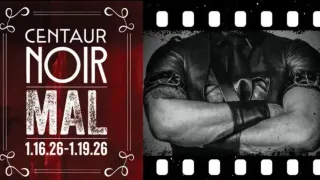February 19, 2016
Race
Kilian Melloy READ TIME: 5 MIN.
African American athlete Jesse Owens -- his real name was James Cleveland Owens, or J.C., but that got turned into "Jesse" by a schoolteacher -- is a hero much more unsung than heralded, despite having gone to the 1936 Olympics in Berlin and rubbed the Nazis' faces in filthy lie of their own racial propaganda by winning four gold medals.
That omission is rectified, to an extent, by the Stephen Hopkins-directed film "Race," which stars Stephan James as Owens and Jason Sudeikis as his color-blind coach, Larry Snyder, one of the very few whites in the film who doesn't look at Owens (and the other black characters) with reflexive, sometimes overplayed, alarm and disgust. This is the 1930s, and America -- though nominally a land where all human beings are considered equal -- has a problem with race that's as pervasive, though not as out of control, as the one in Germany.
The film starts in 1933, as Owens is on his way to college at The Ohio State University. He leaves behind his girlfriend and young daughter in order to have a shot at a better life, but times (and the attitudes of many white Americans) being what they are. Owens -- already a star athlete -- is in for a bumpy ride. Luckily, the university's track and field coach, Larry Snyder -- a former Olympic-level athlete in his own right -- is far more interested in the caliber of Owens' athletic talent than in the color of his skin. That's not a quality that many other coaches at the university share, among them the coach of the all-white football team, but Snyder turns the situation to his athletes' advantage when he teaches them to screen out and ignore the racial taunts of the football players. It's good practice for when the team are on the field and competing in front of hostile, bigoted crowds. A few years later, under Snyder's tutelage, Owens is off to the Olympics.
In a parallel story, the U.S. Olympic Committee is torn over the question of whether to boycott the Olympics in protest of the Nazis' racial policies, which included statements to the effect that Jews and people of color should not be allowed to participate. Jeremy Irons plays construction tycoon (and former Olympian) Avery Brundage, who insists that sport and politics are separate realms; his argument carries the day over the objections of fellow committee member Jeremiah Mahoney (William Hurt), in part because Brundage personally hammers out a deal with Joseph Goebbels (Barnaby Metschurat, portraying Goebbels as a dead-eyed creature whose soulless gaze raises hackles -- not unlike certain individuals among the field of this year's Republican presidential wannabes). The agreement the two reach -- through the assistance of groundbreaking filmmaker Leni Riefenstahl (Carice van Houten), who repeatedly clashes with Goebbels in the name of artistic freedom -- ensures that America's black and Jewish athletes will be allowed to compete, and also results in Brundage's company securing a lucrative contract to construct a new German embassy.
As directed by Hopkins and written by Joe Shrapnel and Anna Waterhouse, the film is fairly manipulative, with every gesture and every beat underscored and capitalized. The hypocrisy of America criticizing Germany's racial stance while being a deeply racist nation itself is a meme that's tossed out with metronomic regularity, either in so many words or through the actions of white American athletes, coaches, and establishments that treat black citizens with disdain and dismissal. The camerawork, editing, and music all have a generic feel about them, as though the film's crew were selecting options from a predetermined menu; stylistically, it's all so overt and lacking in finesse that it starts to grate on the nerves after a while.
The film is structured to show us just enough of characters we're meant to despise to ensure that, yes, we will despite them, after which they disappear (hello, gold-digging vixen; goodbye, gold-digging vixen). That same structure serves to give maximum weight to scenes designed to make the viewer's blood boil at any number of overt injustices large and small, and to allow the characters who embody more progressive attitudes to shine -- among them, German athlete Luz Long (David Kross), who publicly embraces his dark skinned American rival and then gets a rather lengthy scene in which to explain his difficult position as a patriot who is far from blind as to his nation's excesses. He's a good guy, but of a standard sort; his speech is so boilerplate and nonspecific that it could well be transplanted to a sympathetic character in a contemporary film, someone despairing over the state of today's America, and it would work just fine regardless of whether the character in question were a liberal or a conservative.
Riefenstahl herself occupies a puzzlingly large share of the movie. She's portrayed in a redemptive light, as a filmmaker so entranced with the grandeur of her large-scale documentary project (using 23 cameras and a budget of millions to film the games) and her innovative camera techniques that the politics surrounding her propaganda films are not only in a separate sphere, they seem not even to enter her consciousness.
As for the film's putative stars, Stephan James ("Selma," "When the Game Stands Tall") does a credible job with the role, but he doesn't communicate the mixture of rage, ambition, humility, and strength you'd expect. Maybe we've been spoiled by performances like that of Chadwick Boseman in "42," but it's hard not to get the impression that James' performance is carried by the film's editing, score, and cinematography rather than achieving a necessary level of self-sustainment.
As Snyder, Sudeikis has a chance here to break away from his usual casting in comedies. He has the right kind of face for a 1930s character, but his delivery is not always convincing. Did men in the '30s actually say things like "That'd be great" and "Congrats!"? Maybe they did, but Sudeikis makes those utterances sound anachronistic. (He's not alone in these difficulties: Irons makes the Detroit-born Brundage sound like he grew up in London.) The script gives Owens and Snyder plenty of chances for friction, connection, reconciliation, and more, but the lines they have to speak -- like so much of the movie -- have a stale, pre-packaged feel about them.
"Race" has Important stamped all over it, starting with the ham-handed double meaning of its title, but its own feeling of importance cannot overcome the ponderous way the story clumps along, nor the undisciplined sprawl of its narrative. There's no help to be found in the way the movie pokes at us with sharp examples of what's now called "microaggression," even when there's nothing micro about the racist aggression being depicted. In the end the film feels less like a triumph than a reminder of how much progress we have yet to achieve.







